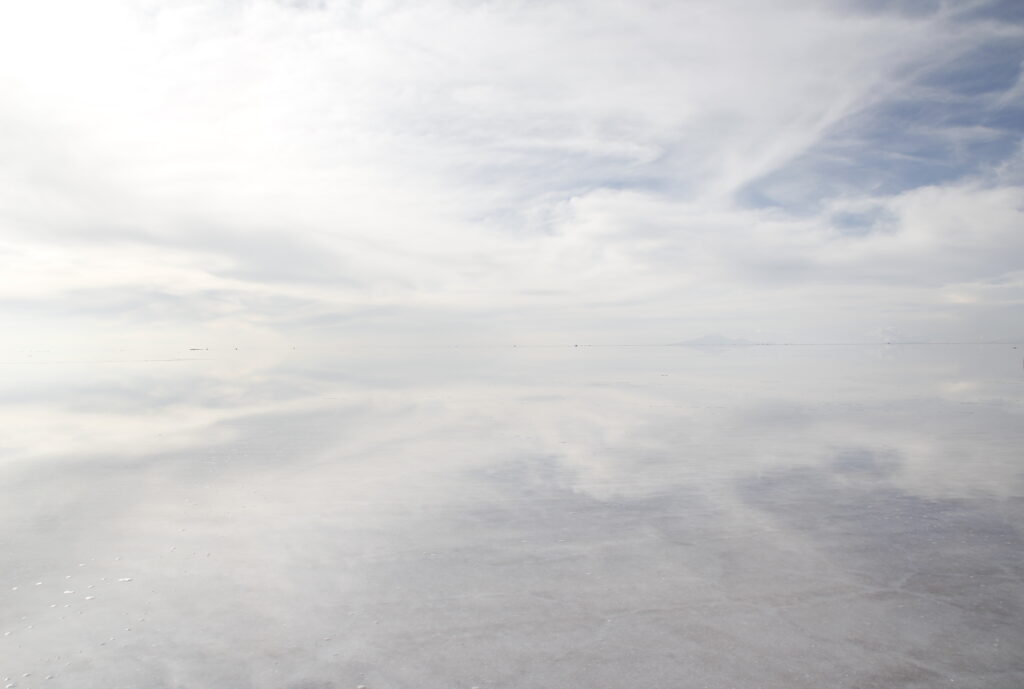
Endless vastness, silence. As far as the eye can see. From time to time 4-wheel drives – with plenty of tourists – come into my sight. The crystal white ground is covered with a low layer of water. Not more than a few centimeters. But sufficient to blur the horizon line. Sky and earth can be hardly separated. Cloud formations are reflected on the surface of the water and therefore on the earth. It’s difficult to breath at an elevation of 3656 meters above sea level – at the Salar the Tunupa (Salar de Uyuni), a 10 000 square kilometres salt flat located in the Bolivian andes. During the last few years the Salar de Tunupa became more and more subject of national and international reporting. Thanks to the world’s largest lithium reserves suspected beyond the salt crust. That’s why I went there in January 2020 to talk to different local people about the lithium exploitation. During my stay around the playa I came across different stories. I want to share some of them with you.
“You can’t enter the salt flat if you don’t know it, because it’s really dangerous.”
The salt flat is a difficult terrain to traverse. That’s why the local people are the ones who take on the role of transporting the brine to the lithium plant. In the following video local voices give an insight into some challenges of the Salar de Tunupa:
Milton Lérida an economist from Sejcihua, a little village on the western side of the salt flat, is committed in struggles about local involvement in the state-run lithium project. As he invited me to his home, he not only shared his motivation about fighting for local recognition but also some stories of his childhood. I want to share one story about a mice plague, which really got to me. With this story I want to raise the question if and how storytelling is able to question familiar or established ways of thinking by subverting hegemonial narratives and creating ontological openings.
So have a look at the following video and get inspired:
The music plays a central role in my videos. Following composer Carlos Gutiérrez I want to think of it as a decolonial method. The experimental orchestra of indigenous instruments La Paz (OEIN) connects indigenous instruments with contemporary music without creating hierarchies. Carlos Gutiérrez understands the orchestra as a form of resistance:
“A space, we hope, of resistance, in the face of constant confrontations with all kinds of forms of imposition, right? […] How do we coexist with this double influence, that of the West and that of the indigenous world, which is often contradictory? And what’s the answer? It’s a creative answer.”
Media and cultural studies scholar with a passion for postcolonial theories, situated encounters and narratives. Visualizing different lines of connection with the film project "Lithium Stories".
---
Estudios culturales y de los medios de comunicación, apasionada de las teorías poscoloniales, los encuentros y las narrativas situadas. Visualización de diferentes líneas de conexión con el proyecto cinematográfico "Lithium Stories".
---
Medien- und Kulturwissenschaftlerin mit einer Leidenschaft für postkoloniale Theorien, verorteten Begegnungen und Erzählungen. Visualisierung verschiedener Verbindungslinien mit dem Filmprojekt „Lithium Stories“.
